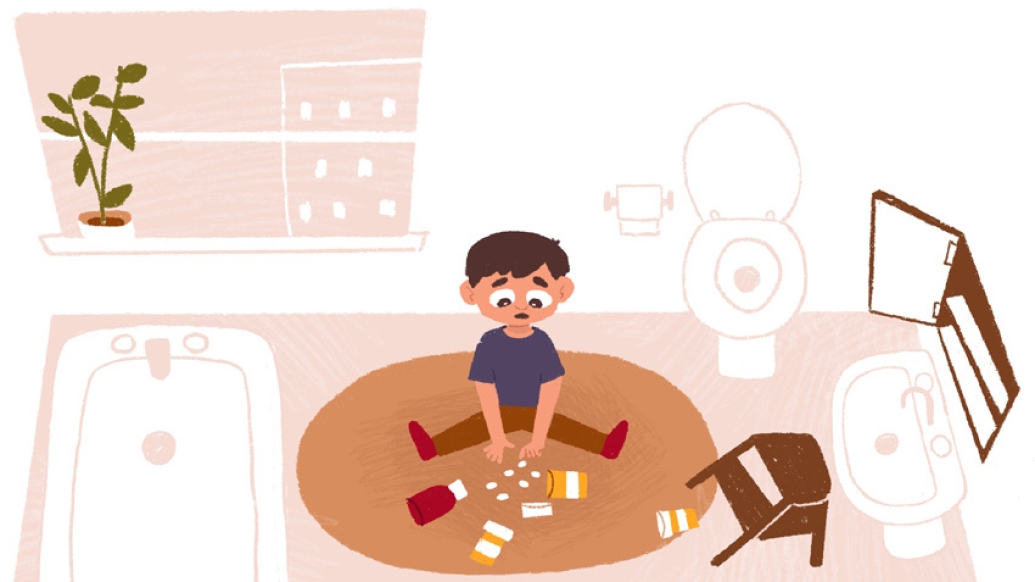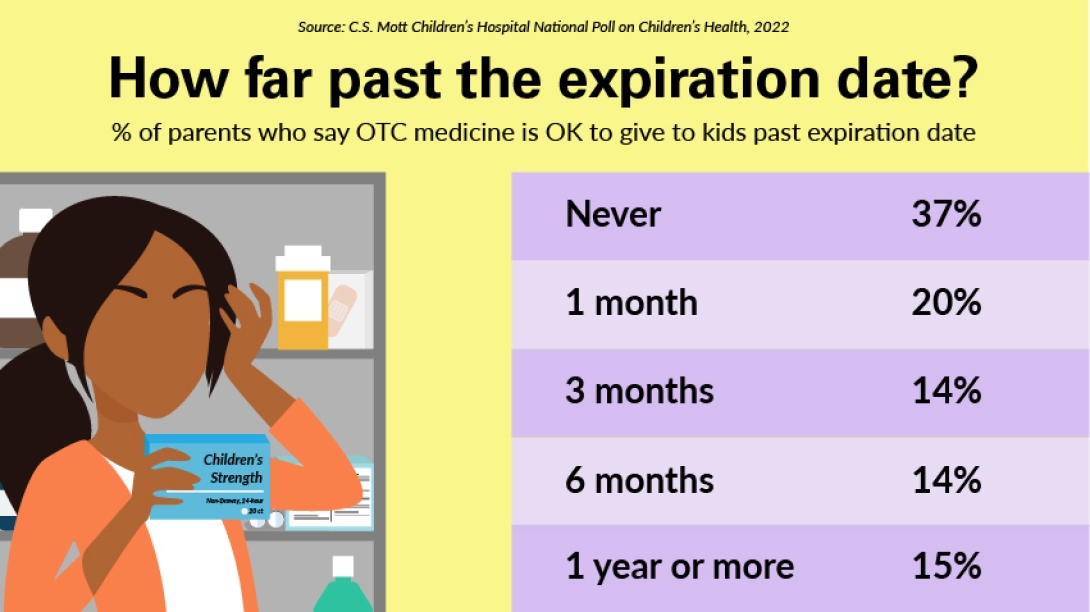Many parents aren’t sure how to dispose unused medicines, one in five think it’s unsafe to take medicine past the expiration date, national poll suggests.
5:00 AM
Author |

Many children live in homes with unused prescription drugs and expired medications, a national poll suggests.
Nearly half of parents say they have leftover prescription medication at home, according to the C.S. Mott Children's Hospital National Poll on Children's Health at University of Michigan Health.
Four in five parents say they have disposed of over-the-counter medicine past the expiration date.
"We found that it's common for parents to keep medicines long after they are expired or no longer needed, which creates an unnecessary health risk for children," said Mott Poll co-director Sarah Clark, M.P.H.
"Younger children getting into medicine in the home is a major source of unintentional poisonings. For older children, access to these medicines brings risk of experimentation, diversion to peers, or other intentional misuse."
The nationally representative poll was based on 2,023 responses from parents of children 18 and under who were surveyed between August and September 2022.
Less than half of parents believe that over-the-counter medicine is less effective past its expiration date, while one in five parents think it's unsafe.
"Parents may not realize that medicine is expired until they need it to address their child's symptoms," Clark said. "At that point, parents must decide if they will give the expired medicine to their child or go out to purchase new medicine."
More than a third of parents say it's never okay to give their child expired medicine. But one in three parents believe it's okay to do so up to three months past the expiration date, and about the same number say it would be OK past six months or longer.
"The expiration date is the manufacturer's guarantee that a medication is fully safe and effective; over time, the medicine will lose its effectiveness," Clark said. "Parents considering whether to give their child medicine long past its expiration date should question how well it will work."
Proper medication disposal
More than three in five parents say they are more careful about disposing leftover prescription medicine than over the counter medication. Most also believe it's important to properly dispose of expired or leftover medicine to prevent children from getting into the medicine and to protect the environment.
Still, many parents struggle with knowing how to dispose of it. Nearly three fourths say they do not know which medicines should be mixed in with coffee grounds or kitty litter and one in seven have flushed medicine down the toilet.
Unused and expired medications are a public safety issue and pose health risks to children.Sarah Clark, M.P.H.
The safest choice, Clark said, is to drop off medicine at a permanent collection site at a doctor's office, pharmacy or hospital, or at a community site in conjunction with the U.S. Drug Enforcement Administration's twice annual national drug take back day.
"Unused and expired medications are a public safety issue and pose health risks to children," Clark said. "It's important that parents dispose of them properly when they're no longer needed to reduce risks of kids getting sick as well as the negative impact on the environment."
How to properly safeguard kids from unused medication
-
Limit the amount of medicine you bring into your home. Avoid buying over-the-counter medicine in amounts larger than your family needs. For medication prescribed for "as needed" use, such as pain medication, consider filling only part of the prescription, and return to the pharmacy for additional doses only if needed.
-
Keep over-the-counter and prescription medicine in its original packaging that includes dosing and expiration information. Check expiration dates for your child's over the counter medicines twice a year, particularly before allergy and/or flu season.

-
Lock or at least monitor certain medications that can be misused, including pain medication and sleep medication, especially if there are older kids in the home.
-
Safely dispose of unused or expired medicines by dropping them at a permanent collection site (such as at a local hospital, pharmacy or doctor's office) or a periodic take-back event. Some pharmacies also have mail-back options.
SEE ALSO: Old Drugs in Your Medicine Cabinet? Here's What to Do with Them (uofmhealth.org)
-
If you're unable to return medicine to a collection site, a secondary option is to dispose of it in the household trash. Medicine should go into a plastic bag, be dissolved with water and mixed with kitty litter or coffee grounds to make it unappealing for children or pets to eat. Sealing the bag will prevent the medicine from leaking.
-
Avoid flushing expired or unused medicine down the toilet or sink, which may result in medicine getting in the water supply and expose residents to chemicals in drinking water.

Explore a variety of health care news & stories by visiting the Health Lab home page for more articles.

Department of Communication at Michigan Medicine
Want top health & research news weekly? Sign up for Health Lab’s newsletters today!





